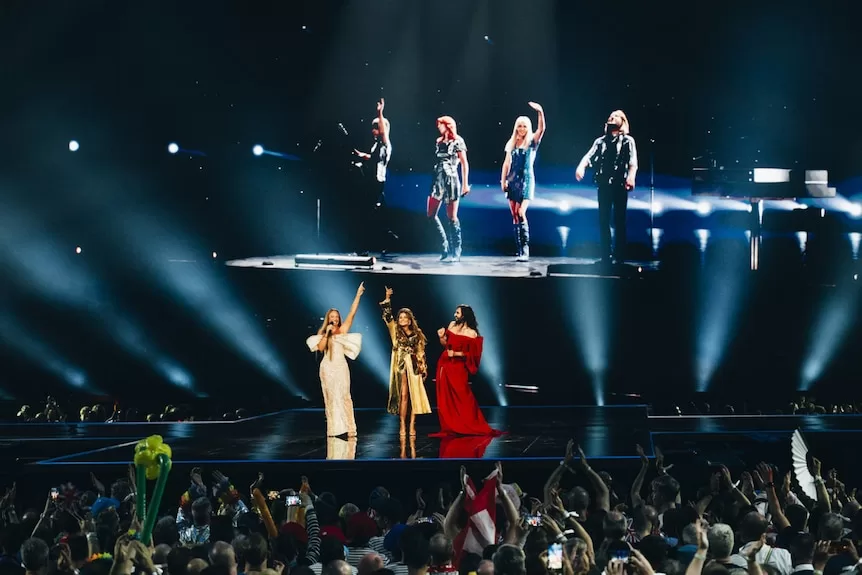This year marks the 50th anniversary of ABBA earning Sweden its very first victory at the Eurovision Song Contest.
Back then, the group performed their smash-hit Waterloo.
With the contest returning to Sweden, home of last year’s winner Loreen, half a century on, it makes sense that the organisers of Eurovision would want to mark that occasion.
Enter, the ABBA-tars.
ABBA didn’t appear in person in Malmö.
Instead, their digital avatars were beamed to the studio from the ABBA Voyage stage show, allowing the Eurovision audience and everyone at home to see the group as they were at their peak.
This came as a surprise to many and drew some criticism online.
A trio of former Eurovision winners also performed Waterloo in tribute.
They were Charlotte Perrelli, who won the contest for Sweden 25 years ago in 1999; Carola, who took the contest to Malmö for the very first time in 1992 after winning for Sweden the year before; and Conchita Wurst, who was victorious for Austria in 2014.
This is the seventh time Sweden has hosted the competition.
Ahead of the grand final, streaming giant Spotify released some statistics demonstrating ABBA’s enduring popularity with Australians.
Sydneysiders stream ABBA more than people in the group’s hometown of Stockholm.
Winner Nemo praises queer representation
Switzerland’s Nemo won this year’s competition, with their operatic pop-rap song The Code.
Nemo is the first non-binary artist to win Eurovision and expressed pride and gratitude at the press conference afterwards.
“I’m mostly just really grateful for this experience and all the friends I’ve made along the way,” Nemo said.
“This was one of the most queer representations we’ve seen at Eurovision, which was amazing. I want to shout out all the other queer artists this year.”
It was a controversial Eurovision.
Hours before the grand final, Dutch contestant Joost Klein was eliminated from the competition over a backstage altercation.
And there was unrest over the European Broadcasting Union’s decision to allow Israel to compete this year.







